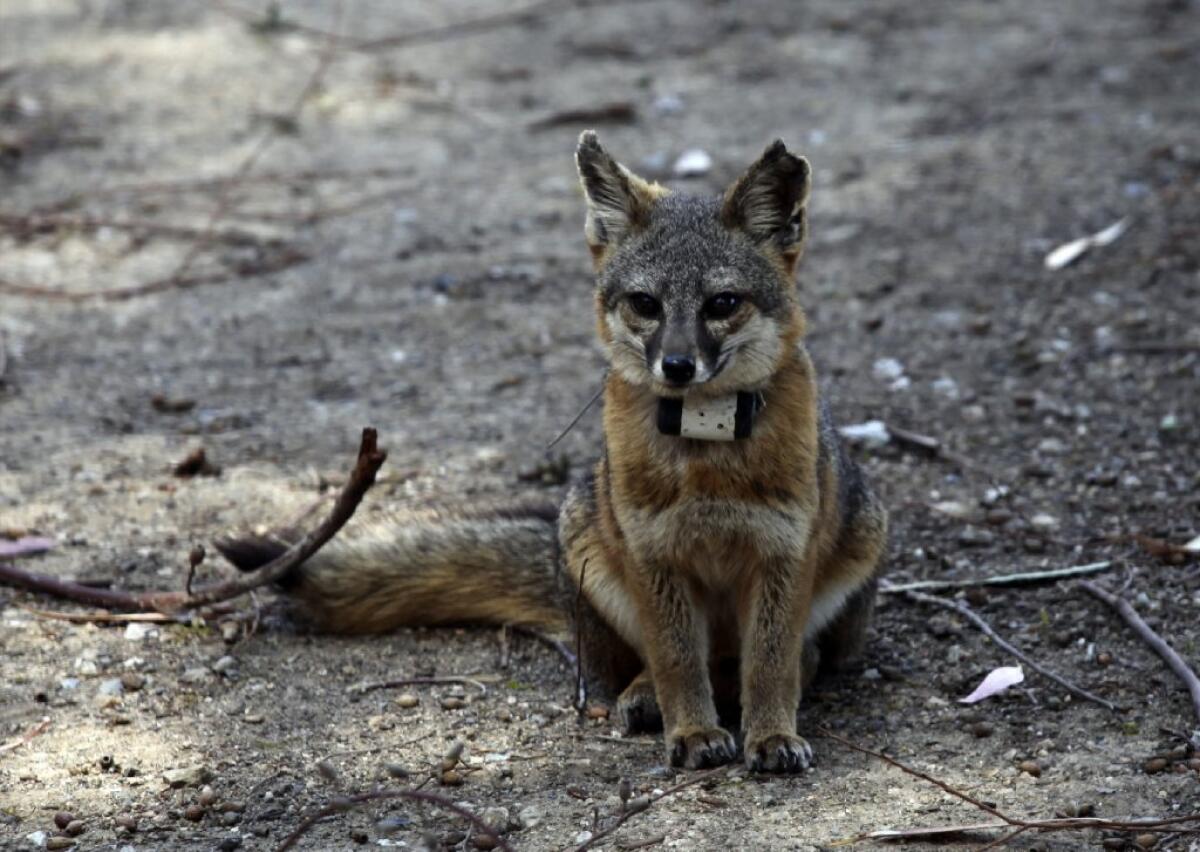Endangered Santa Catalina Island fox population nearing full recovery

The endangered Santa Catalina Island fox population has reached 1,700 and may be nearing its capacity for sustainability on the resort destination off the Southern California coast, a conservation biologist said.
“We’re getting close,” Julie King, director of conservation and wildlife management at the Catalina Island Conservancy, said in an interview.
In 2014, conservancy biologists counted only 19 pups out of 342 individuals captured that year, she said. The year before, they counted 68 pups out of 362 captured.
“It may be,” she suggested, “that the fox population is regulating itself in the face of higher population densities and reduced abundance of prey such as mice due to the ongoing drought.”
The U.S. Fish and Wildlife Service is considering a proposal to have the fox -- a subspecies found only on the island about 22 miles from the mainland – removed from the list of endangered species.
The population stood at 1,342 before it was nearly wiped out by a distemper epidemic introduced by a stowaway raccoon in 1999, prompting the conservancy and the Institute for Wildlife Studies to launch a $2-million recovery program that included vaccinations and a captive breeding facility.
These days the chief threat to the diminutive carnivores is increasing interaction with the 3,500 humans who share the 76-square-mile island and the more than 1 million tourists who visit each year.
Then there is the fox’s own dangerously fearless behavior.
“The recovery of the island fox is one of the great success stories of ecological restoration,” Dave Garcelon, president of the Institute for Wildlife Studies, a nonprofit research organization, said in an interview. “But with no natural predators, this little fox is the king of beasts on Catalina -- and that can get it into trouble.
“I once honked the horn long and loud to get one out from under my car,” he added with a laugh. “It didn’t budge.”
In 2014, at least 21 foxes died after being struck by vehicles; two drowned in uncovered water containers; one was fatally mauled by an unleashed dog; and one perished after ingesting rat poison, the Catalina Island Conservancy said.
The underlying cause of death of nine additional foxes, many of them found near roadside trash cans, was listed as unknown.
The conservancy is raising funds to buy 150 “animal-proof” trash and recycling containers as part of an effort to increase fox survival odds along the margins of the harbor community of Avalon and the island’s 200 miles of roads.
It has already installed “fox crossing” signs along particularly hazardous stretches of road to remind motorists to keep an eye out for the fiercely appealing gray foxes with pointed noses, reddish ears and feet, and black-tipped tails.
The foxes pair for life and generally enjoy a laid-back existence on Catalina.
Follow me @LouisSahagun for more fascinating stories







